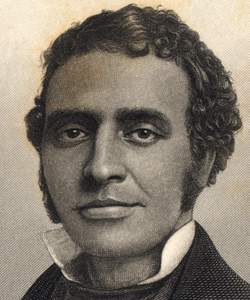Charles Lewis Reason (American National Biography)
Scholarship
[Charles] Reason was also active politically throughout his life. He was committed to the antislavery cause and worked unceasingly for improvement of black civil rights. In 1837 Reason, Henry Highland Garnet, and George Downing launched a petition drive in support of full black suffrage. He was also secretary of the 1840 New York State Convention for Negro Suffrage. Reason founded and was executive secretary of the New York Political Improvement Association, which won for fugitive slaves the right to a jury trial in the state. In 1841 he lobbied successfully for the abolition of the sojourner law, which permitted slave owners to visit the state briefly with their slaves. He also lectured on behalf of the Fugitive Aid Society. An active reporter on education to the black national convention movement of the 1850s, he was secretary of the 1853 convention in Rochester, New York. He spoke out against the American Colonization Society and Garnet's African Civilization Society. In 1849 Reason, along with J. W. C. Pennington and Frederick Douglass, sponsored a mass demonstration against colonization at Shiloh Presbyterian Church in New York City….During the Civil War, Reason served on New York City's Citizen's Civil Rights Committee, which lobbied the New York legislature for expanded black civil rights. After the conflict, he was vice president of the New York State Labor Union. At a union meeting in 1870, he delivered a paper in which he gave statistical proof that education helped New York City blacks gain prosperity.
Graham R. Hodges, "Reason, Charles Lewis," American National Biography Online, February 2000, http://www.anb.org/articles/15/15-00566.html.



